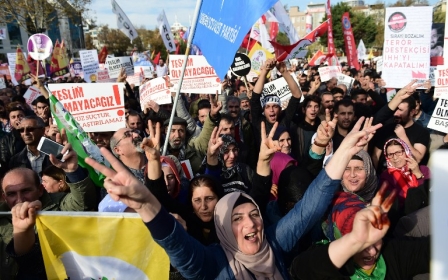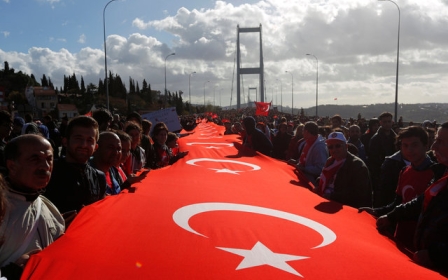Turkey crackdown: Thousands more sacked amid Gulen purge
ISTANBUL, Turkey – More than 10,000 public employees were dismissed from their posts in Turkey on Tuesday in a new round of dismissals via a decree issued by the government.
The decree issued in the early hours of Tuesday announced the sacking of 1,988 soldiers, 7,586 police and 5,434 other public sector employees. Meanwhile 157 people were reinstated in their jobs, based on the same decree.
The decree also announced the closure of 550 associations, nine media outlets and 19 private health service providers.
A state of emergency was declared in Turkey on 20 July, five days after a failed coup attempt which resulted in 246 deaths. It grants the government expanded powers, including the power to rule by decree and bypass parliament.
The government accuses its erstwhile ally turned arch foe of infiltrating various state institutions over the last four decades with the aim of implementing regime change.
More than 100,000 people have been suspended or dismissed from their jobs and at least 35,000 arrested since the start of the crackdown.
READ: Turkish turbulence: Cumhuriyet closure is just the beginning
Domestic and international critics have voiced concern over the observation of judicial due process and the government’s potential abuse of the state of emergency to target all its opponents.
Top government officials, including the prime minister and president, had initially vowed to use state of emergency measures only to cleanse state institutions of Gulen followers. Later they changed their line and said they would not differentiate between enemies of the state.
The three-month state of emergency was extended by another three months in October. Turkish President Recep Tayyip Erdogan hinted at the time that it would be extended for more than a year if deemed necessary.
New MEE newsletter: Jerusalem Dispatch
Sign up to get the latest insights and analysis on Israel-Palestine, alongside Turkey Unpacked and other MEE newsletters
Middle East Eye delivers independent and unrivalled coverage and analysis of the Middle East, North Africa and beyond. To learn more about republishing this content and the associated fees, please fill out this form. More about MEE can be found here.





